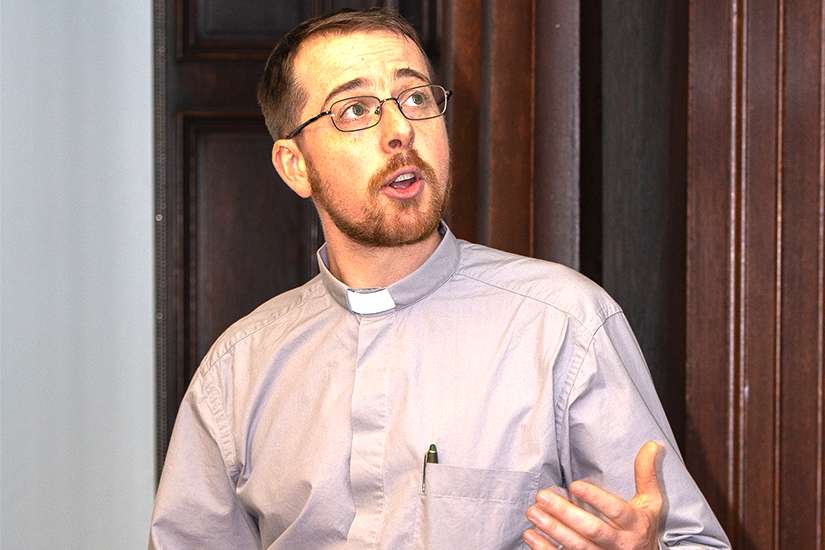“I never considered that I left science to become a Jesuit,” Hincks told about 40 people gathered at Toronto’s Regis College for an evening talk about Jesuit contributions to science.
The fact that 35 craters on the surface of the moon are named after Jesuit scientists bears out Hincks’ contention that Jesuits and science go together like apple pie and ice cream. One of those Jesuit immortalized with a crater is Maximilian Hell, a Hungarian Jesuit who was one of the first scientists to observe and record the transit of Venus in 1769.
Hell (whose name is also spelled Höll, but is recorded as Hell on the surface of the moon) used his careful record of Venus’ passage between the Earth and the sun to calculate the size of the solar system, the size of the sun and the distance between the Earth and the sun.
Two-hundred-fifty years later, Hincks’ own research isn’t so different. Hincks has been part of research teams throughout his nine years of Jesuit formation and continues to dedicate a day or two each week to scientific research, even as he is completing the academic work for his licentiate in theology at Regis College, a pontifical institute with the ability to confer ecclesiastical degrees since 1956.
Hincks studies the cosmic microwave background, an electromagnetic remnant of the universe’s first moments during the big bang. He uses that information to draw conclusions about how the universe has developed and expanded (the rate of expansion is accelerating) over the last 14 billion years.
There are mysteries science has not yet solved. Hincks and his colleagues in astrophysics wonder what exactly the universe is made of. Only 4.9 per cent of it is the sort of ordinary matter that most of us bump into here on Earth. The universe is 25.8 per cent dark matter and 68.3 per cent dark energy. Why dark? When scientists say dark they’re not talking about its colour or its mood; they’re saying, “We don’t know.” That means 95.1 per cent of the universe is made of “we don’t know.”
With the spiritual exercises behind him, Hincks has prayed and thought and wondered about the connections between his time spent in the Atacama desert of northern Chile building instruments and writing software to help better understand the universe and his time praying with and serving ordinary people as a deacon.
“Studying theology has equipped me well,” Hincks told his audience at the September talk.
Hincks is looking again at the doctrine of creatio ex nihilo — the idea found in Christian and Jewish thought that the universe was made from nothing.
The Canadian Jesuit maintains a dialogue with philosophers and theologians about how the latest results in the physical sciences can be incorporated into a philosophical understanding of creation from nothing.
Having worked at the Vatican Observatory while studying theology in Rome, Hincks insists that the Jesuit history of contributions to science isn’t just history.
“It’s not something in the past. It’s not something just for the history books,” he said.
Correction: A previous caption identified Adam Hincks as Fr. Adam Hincks. Hincks is a Jesuit scholastic and deacon.

